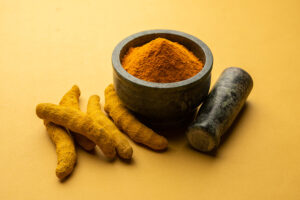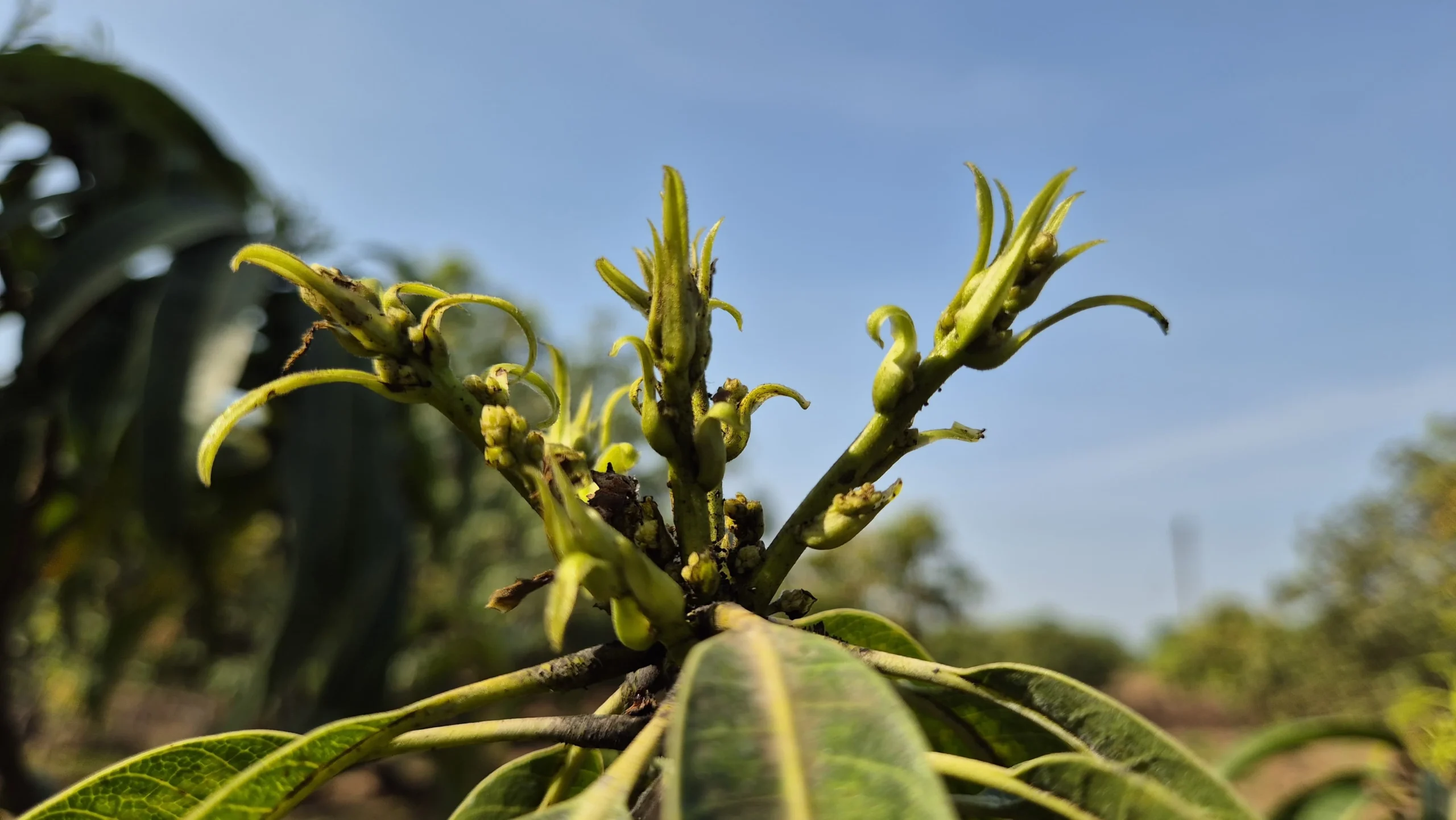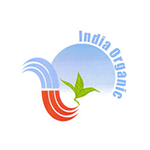

The first flowering has started in the Konkan orchards of Aamrai, especially in Ratnagiri and Devgad. Initially, the flowering was quite sporadic, but over time, it has gradually spread across the orchards. This year, however, the flowering has been delayed by almost a month. Compared to last year, when flowering began in mid-October, this delay is mainly due to the late retreat of the monsoons. In some parts of Devgad, there is even a fresh flush of leaves and new vegetative growth along with the flowering. What is needed now is a few weeks of dry and cold weather to accelerate the flowering process. Thankfully, the recent chilly and windy weather is promising, and we hope this continues.
The delayed retreat of the monsoons has several indirect consequences for both humans and nature. Everything in nature is interconnected, and every event has a ripple effect. For example, the Aamrai farm team consists of workers from the local villages as well as a few who travel from Nepal each year. Many of these workers have been with us for decades, with some working across generations. Typically, they arrive in Ratnagiri after Diwali when the monsoon has retreated, and flowering has started. This year, however, since the flowering has been delayed, their arrival has also been postponed. This delay has significant consequences, as their livelihood and their families’ well-being depend on mango farming. While we help them with advances and loans, if the work isn’t available on the farms, there is little to do.
Currently, the primary task is cleaning the farms to ensure easy access across the terrain and to spot dangerous creatures like snakes and scorpions, which are a threat to the workers in the Aamrai orchards. Typically, by this time, the farms are cleared, and wild grasses and weeds are cut down using grass/brush cutters. The period during and immediately after Navratri usually sees the strongest grass growth due to the combination of strong sun and the retreating monsoon. This year, however, the grass grew later than usual, leading to leftover work.
The cows and buffaloes that graze the fields from summer through the first flowering help, but they cannot completely control the grass growth. The sun-dried grass, or hay, is then cut, stored, and used as cattle fodder until May. Nothing goes to waste at Aamrai Organic. Additionally, the cattle naturally fertilize the soil with their urine and droppings while grazing, helping the growth of Organic Alphonso Mangoes. Interestingly, the cattle’s urine also serves as a natural defense against pests and larvae that affect the mango trees. The Aamrai Organic farm operates on a symbiotic, interconnected model, where every element works together for mutual benefit.
The end of the monsoon and the arrival of summer signal the regular planting and harvesting of a variety of vegetables that are grown for self-consumption. These vegetables are not commercially sold, but the taste is unbeatable. Whether it’s the simple, organic aubergine (brinjal) or the crisp bhendi (okra), the freshness and flavor are out of this world. The Konkan soil enhances even the most humble vegetables, making them a true treasure. This locally grown produce adds to the charm of living in Aamrai, where organic farming practices are at the heart of everything we do.
Lastly, the upcoming arrival of the Olive Ridley sea turtles to the beaches of Ratnagiri is an exciting event for nature lovers. From late November, the turtles will begin arriving at Gaonkhadi, Guhagar, Velas, and other nearby beaches to lay their eggs. This nesting process will continue until March or April. If you’re a nature enthusiast, witnessing this incredible event should be on your bucket list. I’ll share more details about this in a separate blog soon, but the experience of seeing these majestic creatures is truly unforgettable.

USDA (USA)

GI Certified

India Organic


Copyright © 2025. All rights reserved by Aamrai Organic
WhatsApp us
Share your details to receive an exclusive discount on the first batch of premium Malawi Mangoes this season. Don’t miss out on the taste of true luxury!